Social Emotional Learning Teaching Resources
Are you on the hunt for social emotional learning activities, printable PDFs and more to bring SEL to life in your elementary lessons this school year? The list of academic benefits of SEL instruction is a mile long, and the Teach Starter teacher team has created a robust collection of social and emotional learning resources made with teachers – and your students — in mind.
We've made planning your social-emotional learning lessons simple with printable SEL worksheets and digital social and emotional activities designed specifically for the needs of elementary school students. Each resource in this collection has undergone rigorous review by the expert teachers on our team to make sure you'll be comfortable passing them out in the classroom or sending them home in a student's backpack.
Pardon us if we're sharing something you already know (feel free to skip right to the social emotional learning activities!), but if you're new to incorporating SEL into your classroom, you may need a quick refresher! Read on for a guide from our teacher team, including a handy definition of social emotional learning, and ways to implement the five core competencies of SEL.
What Is Social-Emotional Learning? A Simple Definition
The most common social-emotional learning — or social and emotional learning — definition describes SEL as "the process through which all young people and adults acquire and apply the knowledge, skills, and attitudes to develop healthy identities, manage emotions and achieve personal and collective goals, feel and show empathy for others, establish and maintain supportive relationships, and make responsible and caring decisions."
What Are the Social Emotional Learning Core Competencies?
We know are definition is a bit of a mouthful, but essentially social and emotional learning covers the following five core competencies:
- Self-Awareness
- Self-Management
- Social Awareness
- Relationship Skills
- Responsible Decision Making

Where Did Social and Emotional Learning Come From?
Teachers have been teaching many of the skills that now fall under the social and emotional learning curriculum for centuries. It's always been our goal to help shape little minds to be caring, productive, and engaged citizens.
But the roots of what we now consider SEL can be traced back to a project in the New Haven, Connecticut schools where school administrators worked with Yale researchers, parents, mental health workers, and teachers to refocus not just the school's academic programs but their social ones too. The project started in the 1960s at two schools considered "underperforming," and by the 1980s, these same schools had academic scores that were at the top of the nation's rankings.
From there, the K-12 New Haven Social Development program was born, establishing a framework for incorporating social and emotional learning into the curriculum. Meanwhile, the non-profit Collaborative for Academic, Social, and Emotional Learning (CASEL) was born in 1994, helping to really bring the term "social and emotional learning" into the zeitgeist.
CASEL was born out of the New Haven projects and helped shape the official definition of SEL listed above in 1997. It now works to expand SEL in schools around the country.
Why Is Social-Emotional Learning Important?
Not sure you have time to fit all of this in alongside the state standards that you're preparing students to meet? A solid social and emotional learning curriculum will help students with everything from managing emotions and developing coping skills to setting positive goals, engaging in positive relationships, and solving problems effectively.
The importance of SEL is hard to overstate, but here are a few core benefits:
- Promote mental health and well-being — Teaching social and emotional lessons in the classroom can help students develop the skills they need to manage their emotions, build positive relationships, and cope with stress and challenges. It's a small step toward better mental health for all.
- Improve academic performance — There's strong research showing that students who have strong social and emotional skills are more likely to be engaged in learning and perform better academically.
- Create a positive classroom culture — Teaching social and emotional lessons can help create the kind of classroom culture where students feel safe, respected, and supported — exactly what we all strive for!
- Prepare students for life after school — Social and emotional skills are essential for success beyond the classroom, be it at home in the immediate future or in college or the workforce. Teaching these skills helps students be better equipped to handle the challenges they will face.
- Address specific social and emotional needs — Teaching social and emotional lessons can help address students' specific needs, such as building self-esteem, managing emotions, and developing empathy for others. This can also help to create a more inclusive and equitable classroom where all students feel respected and valued. It's also good for your overall classroom management.

How to Teach Social and Emotional Lessons
There's little question that there's value in social and emotional learning, but how do you actually teach it? There's no simple answer here, as the exact methodology will differ based on grade level, individual student needs, and even your classroom dynamics!
That said, here are some strategies from our teacher team to keep in mind as you consider how you're incorporating the components of SEL in your instruction:
- Modeling — This is likely no surprise — we are our students' role models in the classroom for so much. Don't underestimate the value of your own active listening, displays of empathy and self-regulation, and other skills that are essential for your students' social and emotional development.
- Classroom Culture — Establishing a safe and supportive learning environment where students feel respected, valued, and empowered goes a long way. Fostering a sense of community, promoting positive communication, and encouraging collaboration and teamwork are all helping kids build their SEL quotient!
- Integration — Of course, you can (and should) have explicit instruction on SEL, but you can also incorporate SEL concepts into your core subject lessons. Discuss emotions related to a character in a book or working on group projects that require collaboration and communication. If you're teaching math, emphasize the importance of perseverance and problem-solving skills. Teaching social studies? Discuss empathy and the ability to understand different perspectives. It all comes together!
- Free Plan
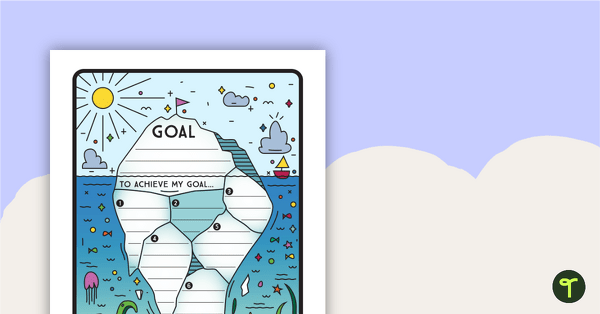
Goal Setting – Iceberg Template
Download a free goal setting template that helps students identify singular aspects that they need focus on to achieve a goal.
- Plus Plan
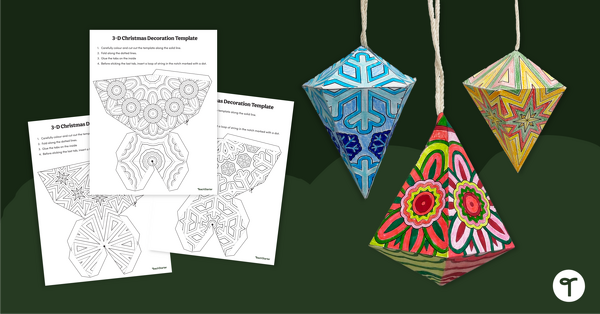
Mindful Coloring Ornaments - Christmas Papercraft
Practice mindfulness while making ornaments with a set of elegant mindful coloring Christmas ornament templates.
- Free Plan
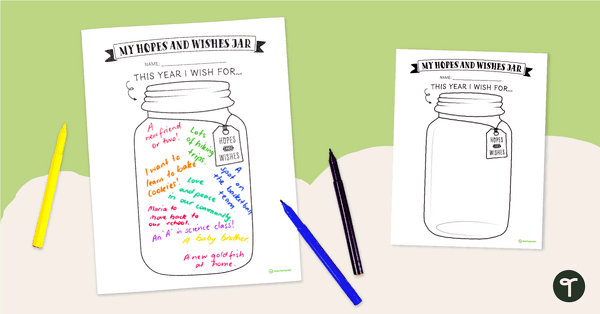
Hopes and Wishes Jar - Goal Planning Template
Have your students craft a hopes and wishes jar to set goals for the school year.
- Plus Plan
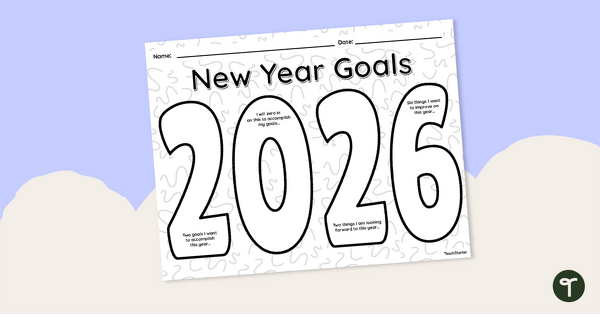
2026 Goal Setting Worksheet
Inspire your students to reflect and set goals for the new year with a Goal Setting worksheet.
- Plus Plan
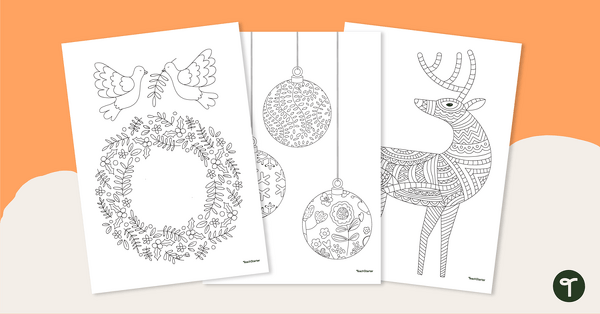
Mindful Coloring - Christmas Coloring Sheets
Use a Christmas mindful coloring sheet as a fun art activity with your students.
- Plus Plan
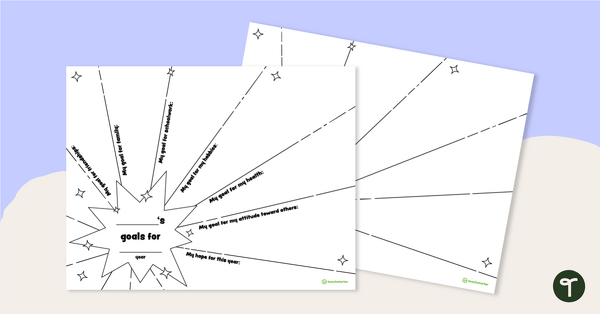
New Year Goal Setting Worksheets - Firework Template
Prompt students to set various personal and academic goals at the start of the new year with our fireworks-themed goal-setting template.
- Free Plan
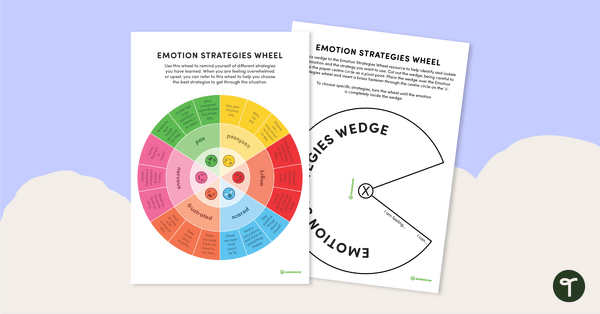
Emotion Strategies Wheel
Help your students self-regulate when they experience "big" emotions with this hands-on emotions wheel with accompanying calming strategies.
- Plus Plan

Mindfulness Christmas Coloring Sheet - Stocking
Practice mindfulness and spark cheer with this Christmas coloring page.
- Free Plan
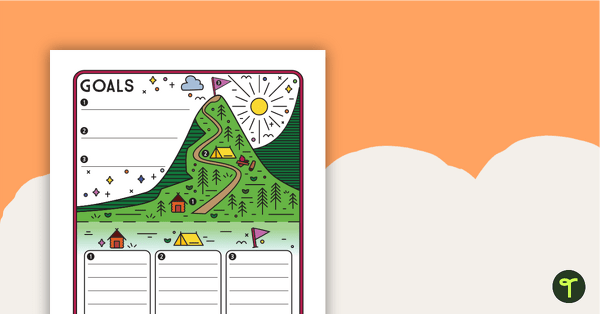
Goal Setting Mountain Worksheet
Use a goal setting mountain worksheet with your students to take them to new heights this school year!
- Plus Plan
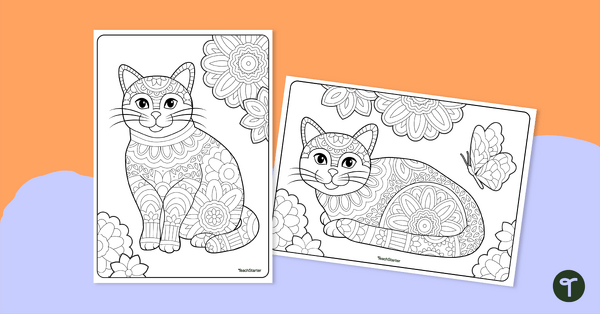
Mindful Cat Coloring Sheets
Bring a sense of calm to your classroom with these delightful cat coloring sheets, “purr–fect” for mindfulness and creativity.
- Free Plan
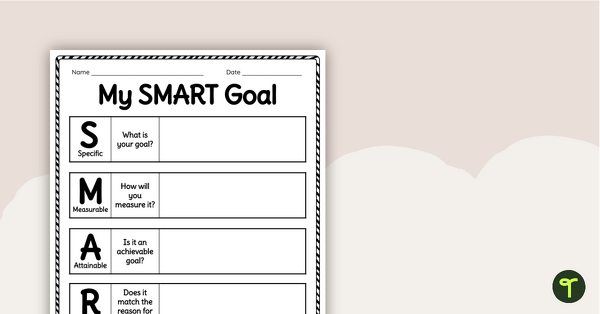
Printable SMART Goals Template
Start the school year by having your students use a printable template to set their own S.M.A.R.T. goals.
- Plus Plan
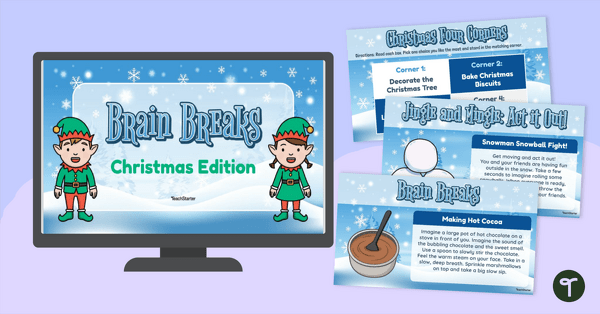
Christmas Brain Breaks - Activity Slides
Add some Christmas Brain Breaks to your classroom festivities to help boost engagement and attention during the holiday season.
- Free Plan
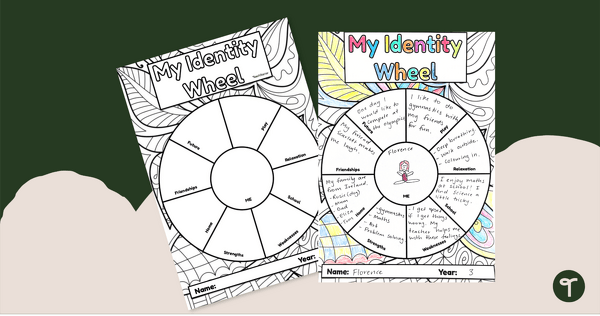
Personal Identity Activity (My Identity Wheel)
Explore personal identity by completing this personal identity wheel.
- Plus Plan
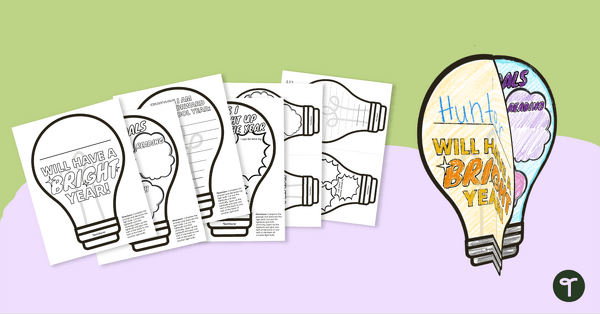
Have a Bright Year! Lightbulb Goal Setting Craft
Brighten up your first day of school with a fun Lightbulb-themed goal-setting craft activity.
- Free Plan
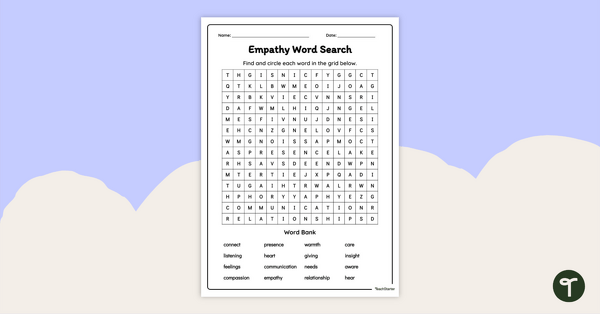
Empathy Word Search
Introduce or review vocabulary terms related to empathy with this free word search worksheet.
- Free Plan
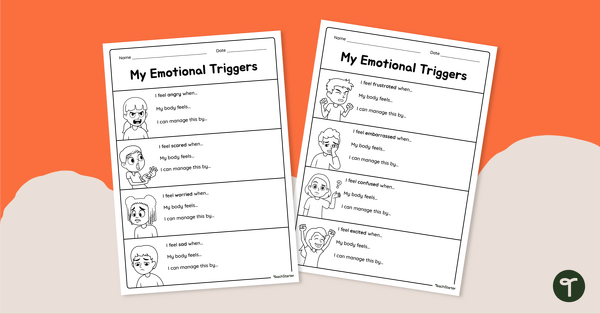
My Emotional Triggers Worksheet
Help your elementary students explore the situations that trigger them to experience certain emotional responses with this 2-page emotional triggers worksheet.
- Plus Plan
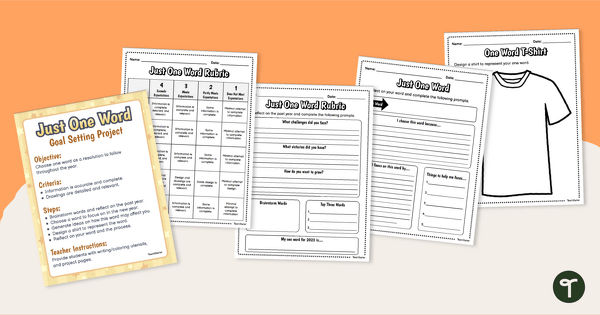
Just One Word Project - New Year's Resolution Activity
Inspire your students to reflect and set one-word goals for the new year with a “Just One Word” project.
- Plus Plan
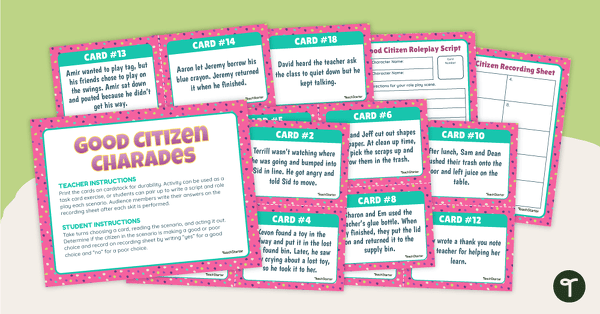
Good Citizens Charades - Role Play Activity
Teach your social studies class about being a good citizen with a game of Citizenship Charades!
- Free Plan
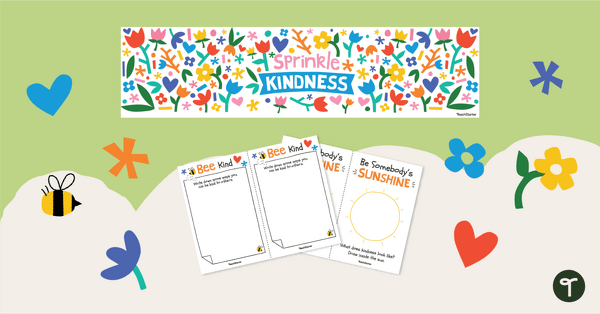
Sprinkle Kindness - Bulletin Board Set
Get your students reflecting on ways to show kindness with this interactive bulletin board!
- Free Plan
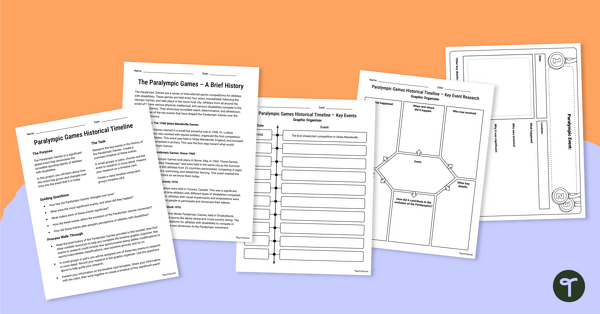
Paralympic Games Historical Timeline – Inquiry-Based Project
Introduce your students to the rich history of the Paralympic Games with this inquiry-based learning project.
- Free Plan
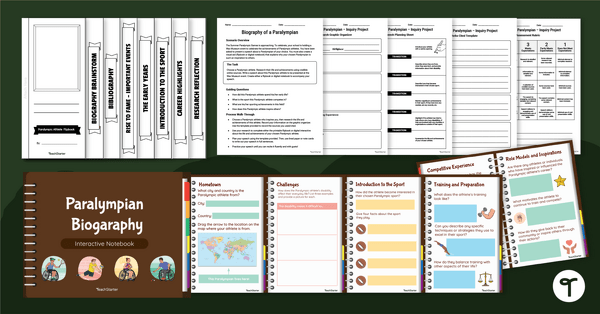
Biography of a Paralympian – Inquiry-Based Project
Have your students investigate the life and achievements of a famous Paralympic athlete with this inquiry-based learning project.
- Free Plan
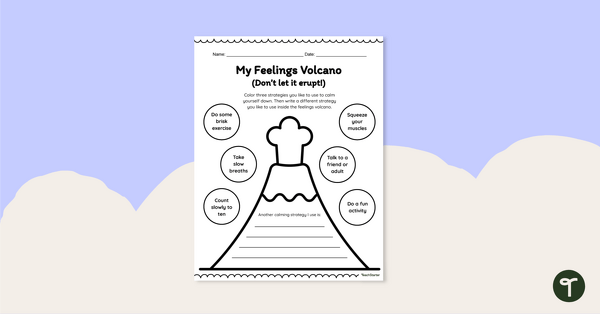
My Feelings Volcano Worksheet
Prevent students from being overcome by strong emotions with this volcano-themed coping skills worksheet.
- Free Plan
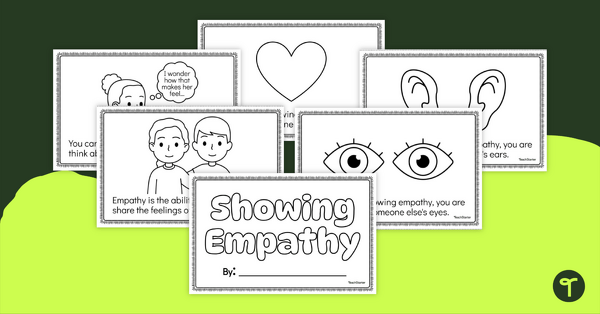
Showing Empathy Mini-Book
Empower young minds and hearts with the gift of empathy! Download this free SEL mini-book designed for primary students.
- Free Plan
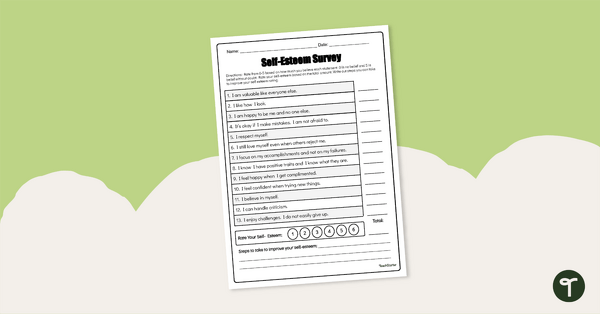
Self-Esteem Survey Worksheet
Explore self-esteem with your students with this self-esteem survey.
- Free Plan
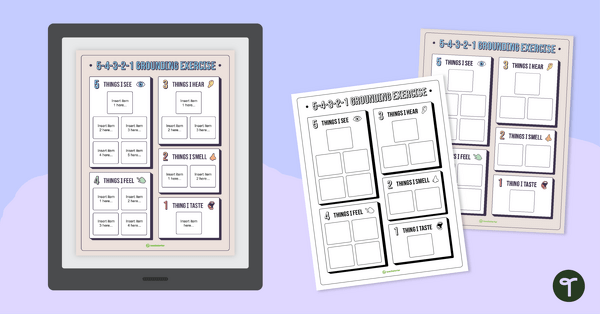
5-4-3-2-1 Grounding Exercise – Worksheet
De-escalate your students while in difficult situations with this calming exercise.
- Free Plan
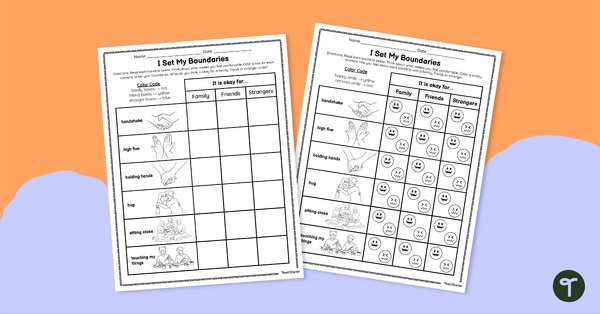
I Set My Boundaries Worksheets
Identify your personal space boundaries with this worksheet set.
- Free Plan
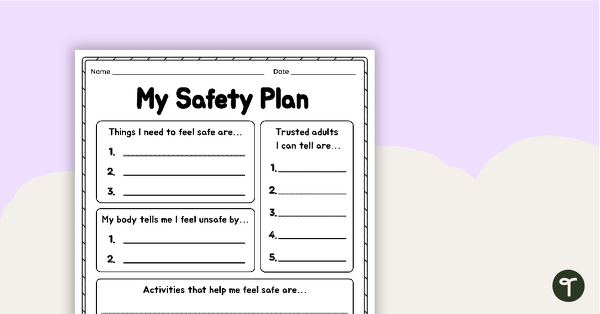
My Safety Plan Worksheet
Create a safety plan to help understand what to do or who to go to when you feel unsafe.
- Plus Plan
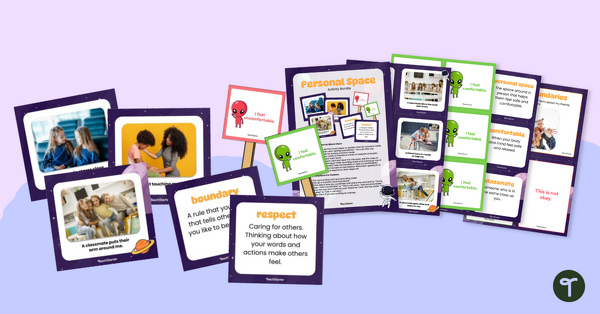
Personal Space and Setting Boundaries Activity Set
Learn about personal space and appropriate boundaries with this activity pack.
- Free Plan
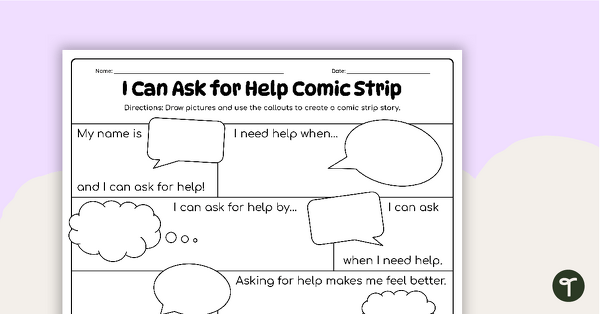
Asking for Help Comic Strip Template
Discuss how and who to go to for help using this comic strip template.
- Free Plan
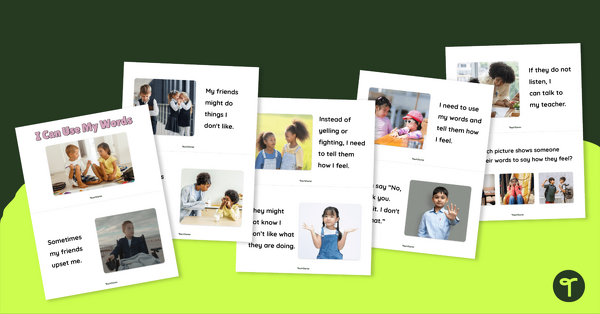
I Can Use My Words Mini-Book
Develop strategies and skills for communicating with others when you don’t like something with this printable mini-book.
- Plus Plan
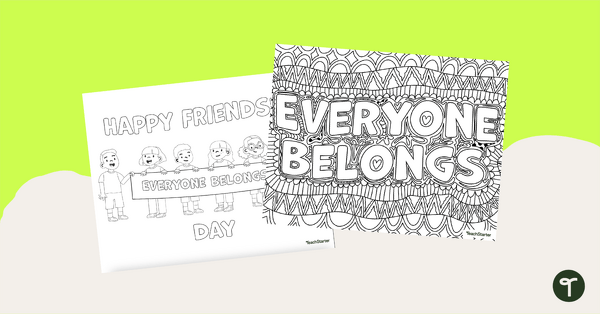
Friendship Coloring Pages
Bring your students together for Friendship Day with a fun pair of friendship coloring pages.
- Plus Plan
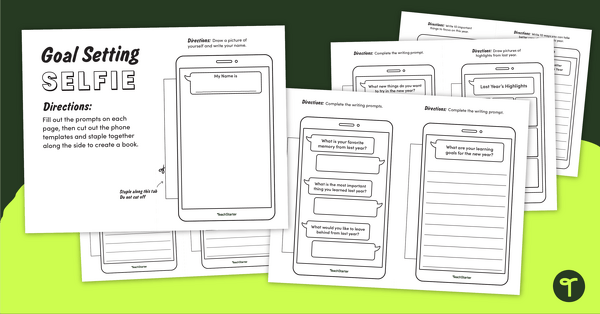
New Year Goal Setting Selfie Project
Inspire your students to reflect and set goals for the new year with a New Year Goal Setting Selfie Project.
- Social Emotional Learning Templates
- Social Emotional Learning Posters
- Social Emotional Learning Worksheets
- Social Emotional Learning Games
- Social Emotional Learning Projects
- Social Emotional Learning for Pre-K
- Social Emotional Learning for Kindergarten
- Social Emotional Learning for 1st Grade
- Social Emotional Learning for 2nd Grade
- Social Emotional Learning for 3rd Grade
- Social Emotional Learning for 4th Grade
- Social Emotional Learning for 5th Grade
- Social Emotional Learning for 6th Grade